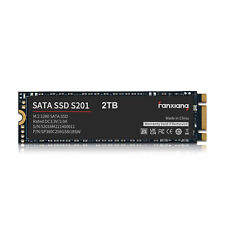-
Senior Member
registered user
Actually, this isn't a fork
While I am open to the possibility that a fork might turn out to be good for the project as a whole, what I have suggested amount to a direct derivative. It might take a life on its own later, but the actual steps starts with standard Knoppix. And for my own part, I would like to keep it that way for a while.
This is about trying out things and ideas, catering for different needs, developing missing routines, and so on. It has not necessarily much to do with "mainstream Knoppix", it has to do with using the resources in an optimal way for some users. Basically, it is about utilizing the stengths and potentials of free (not solely as in free beer) software. Therefore, I think it may be wiser to discuss on the "official" mailing list after we have worked on this and gained experience. There is not really anything speculative or controversial about my suggestions.
As for squashfs, what may be considered one of the closest relatives of Knoppix, Ubuntu, is using it. And I think its introduction might make the remastering process more robust - and surely simpler. For running off CD/DVD, cloop might possibly have an edge - but how much of total Knoppix use today is that?
I think arguments about short-lived derivatives are quite interesting, in the light of Klaus K effectively forking the whole project himself with the introduction of MicroKnoppix and 6.X. I myself would not have used 5.X-type versions for other than "forensic" purposes today, but on this forum we have seen quite a few longtime users preferring the old ways. The changes brought Knoppix closer to mainstream Linux, as will a change from cloop to squashfs. I have never considered "if it ain't broke, don't fix it" a typical open source-attitude. The attitude as I know it, is rather "If it's broke, fix it, and if it ain't broke, great! Experiment with it."
What may be somewhat controversial, is something underlying this: The idea that "if you want more than this, go for the full Debian install." This has clearly been true in the past, but from my ventures into full installs over the last years, I have quickly returned to Knoppix poor man's installs. Even for simple server use, I find Knoppix-derivatives quite good, but this is something to look more closely into.
 Posting Permissions
Posting Permissions
- You may not post new threads
- You may not post replies
- You may not post attachments
- You may not edit your posts
-
Forum Rules


Fanxiang 4TB 2TB 1TB SSD 550MB/s 2.5'' SATA III Internal Solid State Drive lot
$188.99

Netac 2TB 1TB 512GB 240GB Internal SSD 2.5'' SATAIII 6Gb/s Solid State Drive lot
$118.99

Fanxiang M.2 SATA SSD 2TB 1TB 512GB 256GB SSD Internal M2 Solid State Drive Lot
$109.99

Netac 1TB 2TB 512GB Internal SSD 2.5'' SATA III 6Gb/s Solid State Drive lot
$119.99

Patriot P210 128GB 256GB 512GB 1TB 2TB 2.5" SATA 3 6GB/s Internal SSD PC/MAC Lot
$13.99

Crucial M500 480GB SED MLC 2.5" 6Gbps SATA Drive CT480M500SSD1 - PRICE PER UNIT
$24.99

Genuine Samsung 850 EVO MZ-75E250 250GB 2.5" SATA III SSD Solid State Drive
$20.00

Fanxiang 256GB SSD 2.5'' SATA SSD III 6Gb/s 530MBs Internal Solid State Drive PC
$19.99

512GB 1TB 2tb 4tb 256g M.2 2280 SSD SATA3 Internal Solid State Drive Lot Dogfish
$271.99

4 TB SSD SATA III Drive 2.5" Solid State Drive SATAIII 6Gb/s UP to 540MB/s
$148.00



 Reply With Quote
Reply With Quote










